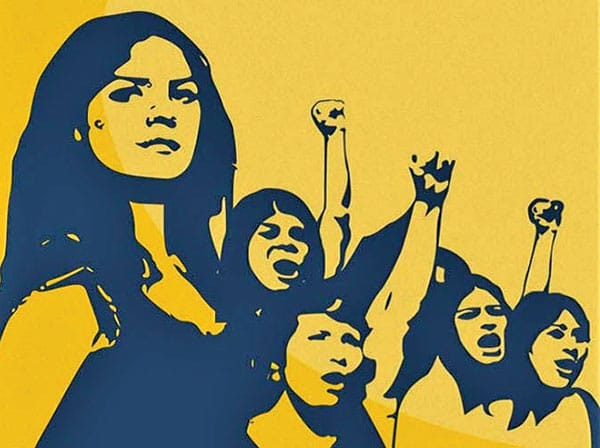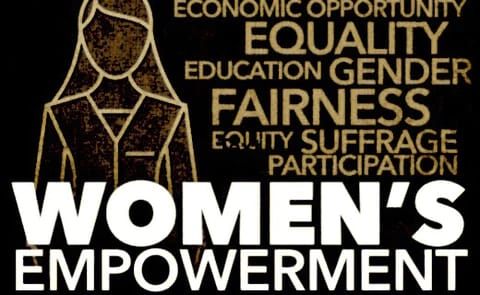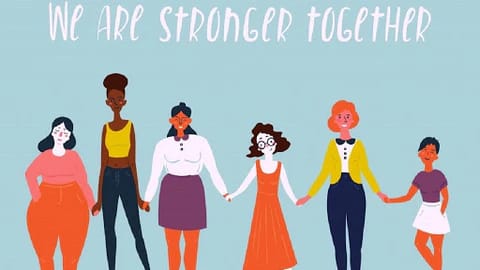
Is women empowerment the need of the hour?

Women’s empowerment has been a topic of discussion for a long time now. Despite the progress made in recent years, women still face significant challenges in various areas of life, including education, employment, and social standing. The question then arises, is women’s empowerment still the need of the hour? The answer is a resounding yes.
Empowering women means providing them with the tools, resources, and opportunities needed to overcome the societal barriers that limit their potential. It involves challenging gender stereotypes and creating an environment where women are valued, respected, and treated equally. Women’s empowerment is crucial for several reasons.
Firstly, empowering women is crucial for the overall development of society. Women make up half of the population and their participation is essential for the growth and progress of any nation. Empowered women are more likely to contribute to the economy, participate in political processes, and drive social change. When women are given the opportunity to reach their full potential, they can make significant contributions to their families, communities, and countries.

Secondly, empowering women is essential for achieving gender equality. Despite the progress made in recent years, women still face discrimination and inequality in various areas of life. Women earn less than men, are underrepresented in leadership roles, and face harassment and violence. Empowering women means giving them equal rights and opportunities and challenging the gender stereotypes that hold them back.
Thirdly, empowering women is essential for creating a more peaceful and stable world. Research shows that when women are involved in peace processes and decision-making, the chances of reaching a lasting peace agreement increase. Empowered women are also more likely to advocate for non-violent solutions to conflicts and to challenge extremist ideologies.

Pakistan, like many other countries, also needs to prioritize women’s empowerment. Despite some progress made in recent years, Pakistani women still face significant challenges in various areas of life. For example, women in Pakistan have lower literacy rates than men, with only 47% of women being literate compared to 71% of men. Moreover, women’s participation in the workforce is also low, with only 22% of women being employed compared to 81% of men.
Women in Pakistan also face social, cultural, and religious barriers that limit their potential. Women’s mobility is often restricted, and they may face harassment or violence when they try to access education, employment, or other opportunities. Additionally, discriminatory laws and practices, such as the Hudood Ordinance, have been used to justify violence against women and restrict their rights.
Empowering women in Pakistan is crucial for the country’s overall development. When women are given the opportunity to reach their full potential, they can contribute significantly to the economy, participate in political processes, and drive social change. Moreover, empowering women is crucial for achieving gender equality, which is still a significant challenge in Pakistan. It is also essential for creating a more peaceful and stable society. Women can play a critical role in promoting peace and challenging extremist ideologies. Moreover, empowering women is essential for addressing global challenges such as poverty, climate change, and health.
Bangladesh has turned out to be a lesson to learn for Pakistan since it is a great example of women’s empowerment. The country which came into being decades after Pakistan’s creation has managed to boost its economy at a better pace than Pakistan and its GDP is skyrocketing. The reason is only implementing women-friendly laws and encouraging their participation in the work sector, providing them with rights equal to men. The increased participation of women in the workforce has contributed to the country’s economic growth, and poverty rates have decreased significantly.
In conclusion, women’s empowerment is indeed the need of the hour. It is crucial for the overall development of society, achieving gender equality, creating a more peaceful and stable world, and addressing global challenges. Pakistan needs to prioritize women’s empowerment to address the challenges faced by women in the country. Empowering women in Pakistan means giving them equal rights and opportunities, challenging discriminatory laws and practices, and creating an environment where women are valued, respected, and treated equally. As a society, we must work together to empower women and create a world where they can thrive and reach their full potential.
Pir Noor Muhammad
National Defence University Islamabad.
Facebook: Noor Muhammad peer
Insta: Pir.Noor_







